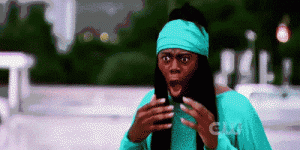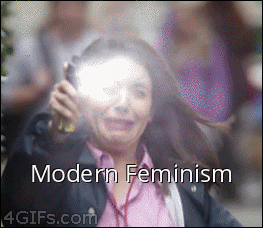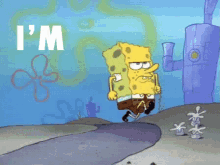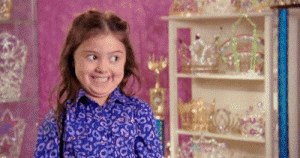Hey y’all! My name is Adaiya Granberry and I am a rising sophomore majoring in Public Policy with a minor in Computer Science. I hail from Tacoma, WA, w hich is a little south of Seattle and is where I have spent basically all of my life prior to Duke. Coming to this elite university was a huge culture shock for me coming from such a truly diverse city, and from the West Coast altogether. I felt like coming to Duke, I was thrown into the big, bad, REAL world.
hich is a little south of Seattle and is where I have spent basically all of my life prior to Duke. Coming to this elite university was a huge culture shock for me coming from such a truly diverse city, and from the West Coast altogether. I felt like coming to Duke, I was thrown into the big, bad, REAL world.
But to be honest, that was kind of what I was looking for. I felt like at home, things like racism, sexism, and homophobia were all very mythic. I myself didn’t encounter (or at least that’s what I thought) people who belittled my worth as a result of my race or my gender. I believed that racism was for the South. Homophobia was for older people who were too stuck in the past to come to terms with the reality of today. I felt myself yearning for not only a different environment, but for the opportunity to experience these tragedies that I protested, but only saw in the news lines in other parts of the country and of the world.
I was immediately confronted with many of these issues in just one short semester at Duke, which was a lot for me to process, but provided much to learn from. I was also motivated to learn more, which is a huge reason why I chose to apply to this program.
What does it mean to be a “feminist”? What distinguishes someone who advocates for women from someone who is a stark feminist? In my high school, this label of a “feminist” always had some sort of negative connotation. The feminists were just the group of girls who hated all of the guys.

While I may not have agreed with this stigma, if you asked me in high school to tell you why or why not, I would not have known how to respond or how to define this very broad thing we call *drum roll please*….. FEMINISM.
There is white feminism versus womanism–this idea of a divide that feminism does not encompass the perspectives and experiences of black women and black feminists.
Intersectionality is not just a matter of race vs. gender, but there are the layers of sexual orientation and of social class and of age that all come together to make feminism much more complex than it is often defined as. So as I read more books and do more research and ask more questions, I only question more and more how I can begin to define this conglomeration of ideas and perspectives.
Through this program, I hope (ke y word: hope) to be able to articulate my own informed opinion of what feminism is and what feminist issues mean to me. And what better place to ask these questions than in the Big Apple! New York City is somewhere I had never been to before this month, an international hub, and a place which I also see as a conglomeration of different nationalities, ethnicities, sexualities, religions, socioeconomic statuses, generations, and much more.
y word: hope) to be able to articulate my own informed opinion of what feminism is and what feminist issues mean to me. And what better place to ask these questions than in the Big Apple! New York City is somewhere I had never been to before this month, an international hub, and a place which I also see as a conglomeration of different nationalities, ethnicities, sexualities, religions, socioeconomic statuses, generations, and much more.
Through my work with Sanctuary for Families, I want to learn more about the day-to-day work in a nonprofit, more about the inner workings of a nonprofit, and how women’s empowerment might be reflected in their work environment. As my first, real internship (SCARY), I also want to perfect my work ethic. I want to be challenged (in whatever capacity that may be) and really hold myself accountable for the work I put forward and how I represent myself as an intern. I have my first, real opportunity to start crafting my brand and how I want to be remembered as an employee in a larger organization working for a cause that is larger than myself.
So, key takeaways:
- I’m Adaiya and I am a Filipino/Black/WestCoastin’/Middle-Class/Millennial feminist.

- I am not really sure what being a feminist totally entails, but that’s why I’m here.

- I want to be challenged not only by my work, but by the many people I encounter in NYC, by their different perspectives, by my awesome fellow Moxies, and by Ada & Shannan.

- I’m kind of anxious, but super excited for all of the self-growth to come my way!!!



Such an interesting perspective of your place of origin – I’ve never known any people of color from Washington State or Seattle so it’s very interesting to see that you thought of Duke as the first place you could see racism sexism and homophobia in action. It makes me wonder about whether or not less overt and more nuanced versions of these -isms and forms of hatred exist in liberal hubs like Seattle and Portland – and whether that hidden-ness makes them more or less problematic and more or less harmful to the people they affect. I’d be super interested to hear your perspective on this, and how it changes over the course of the program!
Interesting that Duke was the first place you experienced these things, it really shows the difference between big cities in traditionally leftist parts of the country and small, rural cities (if Durham is a city). It really brings the differences in cultures and social norms within the US into perspective. The distinction you made between feminism and womanism is important. There is a complexity to issues and at times this seems lost on the majority of women identifying as feminists (at least the way they are traditionally portrayed in media and society). I encourage you to continue researching (good habit, obvi) and to embrace whatever version or understanding you develop. Keep me posted!